'Look to Michigan' fundraising campaign ushers in new era of impact at UM-Flint
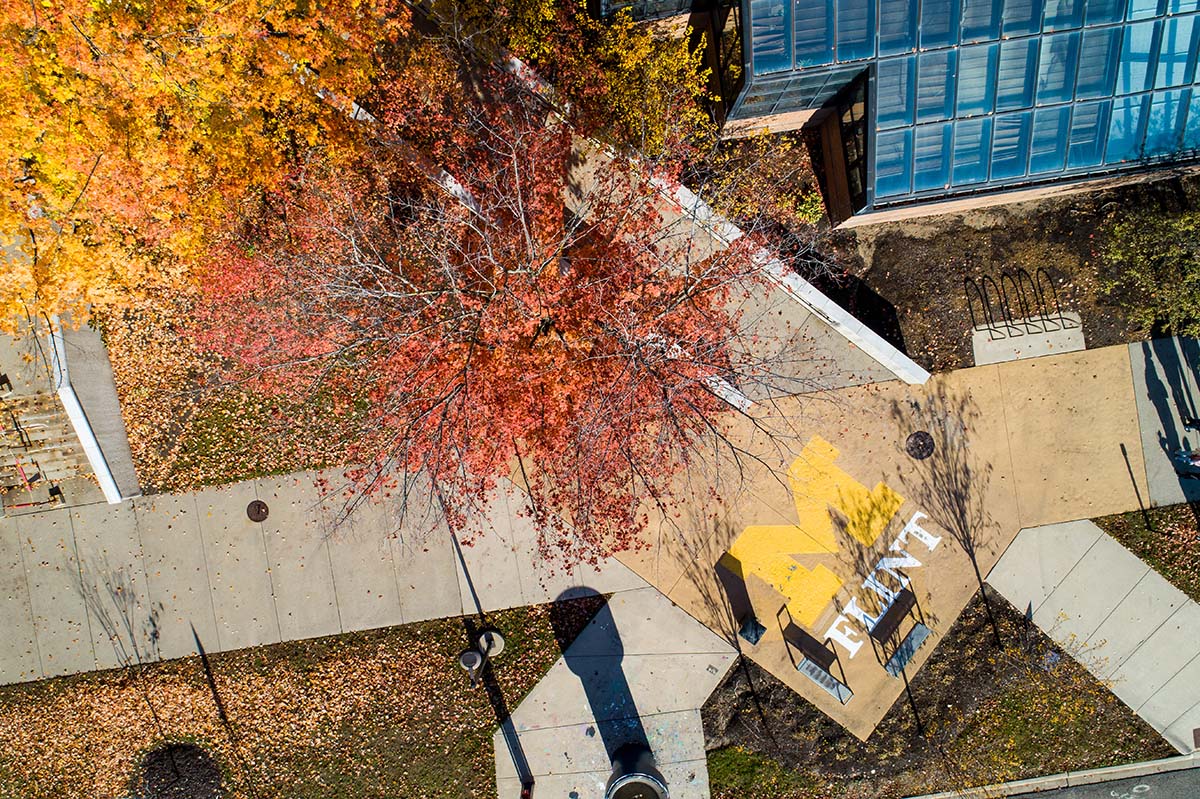
The University of Michigan announced today the launch of the "Look to Michigan" fundraising campaign, the university's most ambitious fundraising campaign to date. With an overall goal of $7 billion, this initiative engages donors, alumni and community supporters of each of the university's three campuses as well as Michigan Medicine and Athletics to impact local and global challenges.
The University of Michigan-Flint has a campuswide fundraising goal of $60 million for the campaign and is guided by a core commitment to diversity, equity and inclusion. UM-Flint has five key areas of fundraising emphasis:
- Enhancing student success.
- Fueling research and innovation.
- Partnering with the community.
- Investing in faculty & staff.
- Transforming the physical campus.
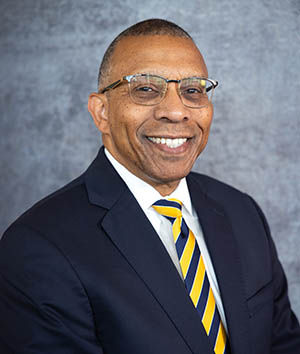
"As we look ahead and seek to engage with the opportunities and challenges facing us, we must continue to strengthen our community and create an environment for all students, faculty and staff to pursue their passions while positioning our university for greater success," said UM-Flint Chancellor Laurence B. Alexander. "Our community is calling on someone, something, to be the change we need now. Look to Michigan."
According to Shari Schrader, UM-Flint vice chancellor for university advancement, the Flint campus has already raised $30 million during the campaign's quiet phase, which began in July 2021. She said that donors are motivated to help the university build on existing successes in the UM-Flint campaign's five key priorities.
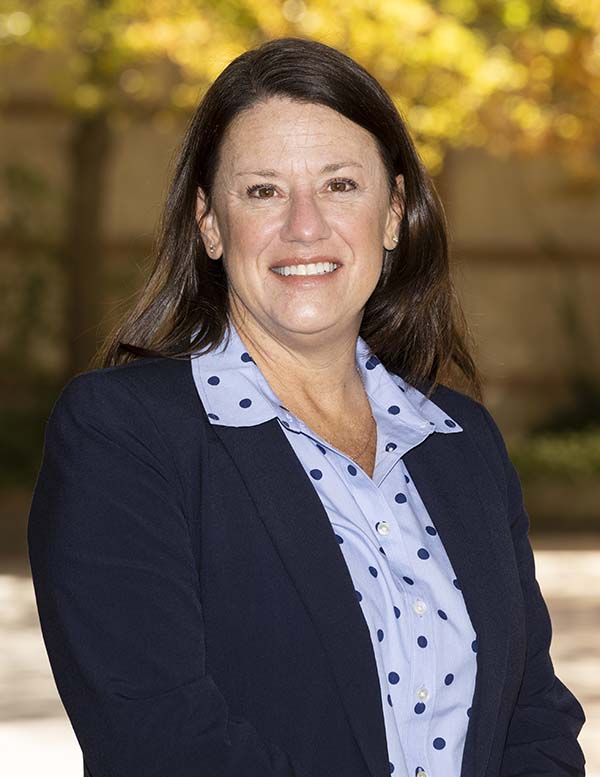
"UM-Flint has a track record of success in, and commitment to, each of the priority areas identified by the Look to Michigan campaign. We look forward to helping donors identify a gift fund that resonates strongly with their passions," said Schrader. "The generosity of donors will allow the university to expand on transformative work currently happening on campus and in the community, ultimately creating better outcomes for our students and the wider world."
Those interested in enhancing student success, for example, could look to the work being done in the university's First-Year Experience courses. Designed to help students become acquainted with the university and learn skills necessary for college-level work, FYE courses can also give students their first taste of off-campus and experiential learning. The "Borders and Crossings" course series gives new students the opportunity to learn about the world through funded community travel opportunities.
After students become established in their academic careers, many take advantage of the funded research opportunities UM-Flint offers–just like Jamiah McQuiller did. The senior cybersecurity major from Port Huron worked with Mark Allison, associate professor of computer science, on his National Science Foundation-funded research project that investigates teamwork and robotics.
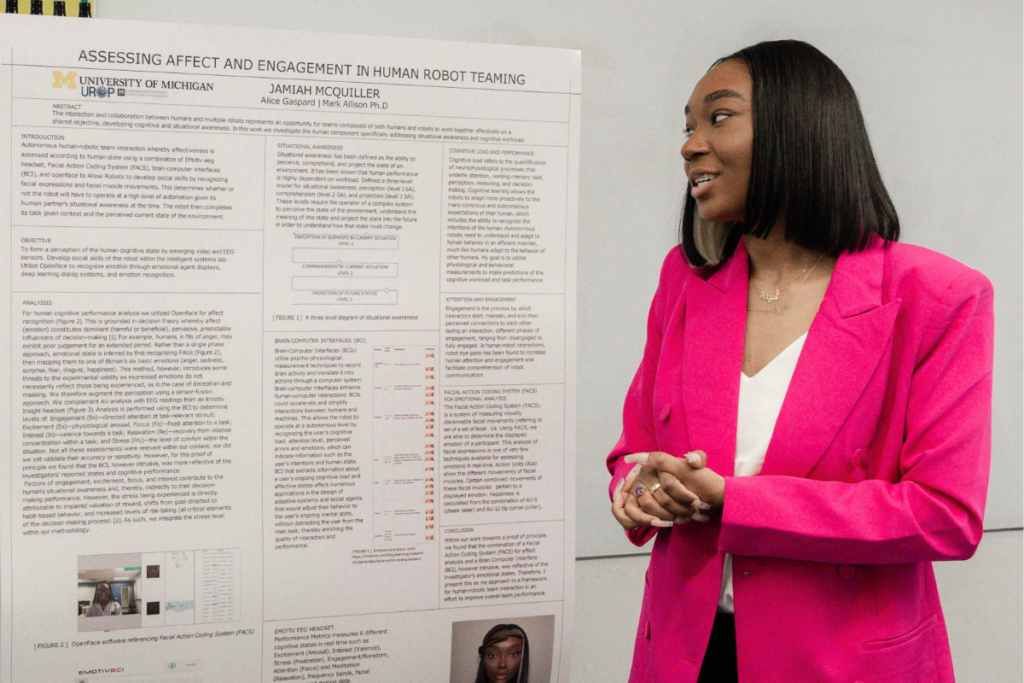
"We aim to create a framework that provides all students with individualized support along a service continuum of career exploration, career readiness and experiential learning," said Christopher Giordano, vice chancellor for student affairs. "Experiential learning opportunities are critical to the development of transferable knowledge, skills and abilities; the expansion of perspectives and world view; and an understanding of performance in real-world scenarios and environments."
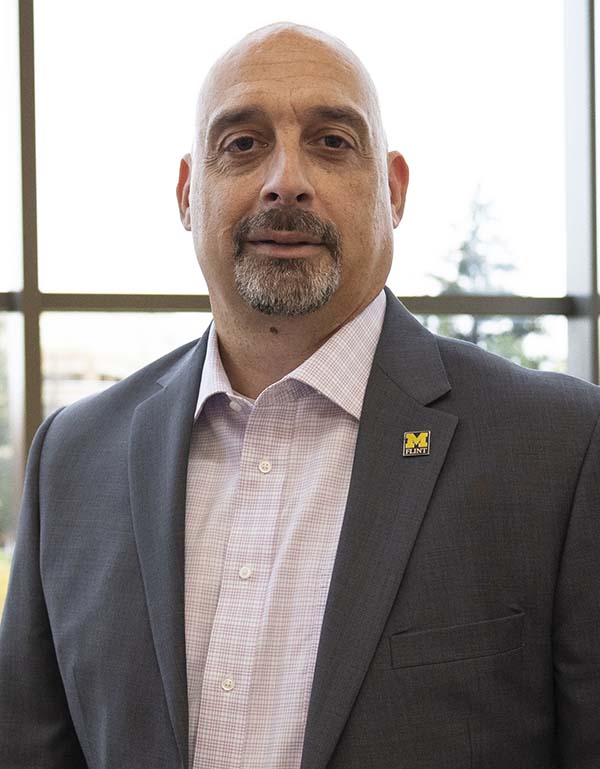
Just as some donors are energized by supporting students in the research lab and in the community, others are motivated to ensure UM-Flint learners have holistic support in their multifaceted academic and personal lives. As more and more students are experiencing health and wellness challenges, the university is prioritizing students' overall well-being as a foundation for student success.
"Donor support can aid UM-Flint in embedding student wellness into all aspects of campus culture through culturally responsive care, mental health and counseling, health promotion, advocacy, peer health education, and educational outreach services," said Giordano.
Concurrent with investment in transformative student opportunities and vital support services is a coinciding investment in campus facilities. One such area primed for donor support is the Frances Willson Thompson Library, which has served as a mainstay of campus for 30 years. Now, with the increasing prevalence of online education and shifting student needs, the Thompson Library is poised to evolve and serve new generations of students and community members for decades to come.
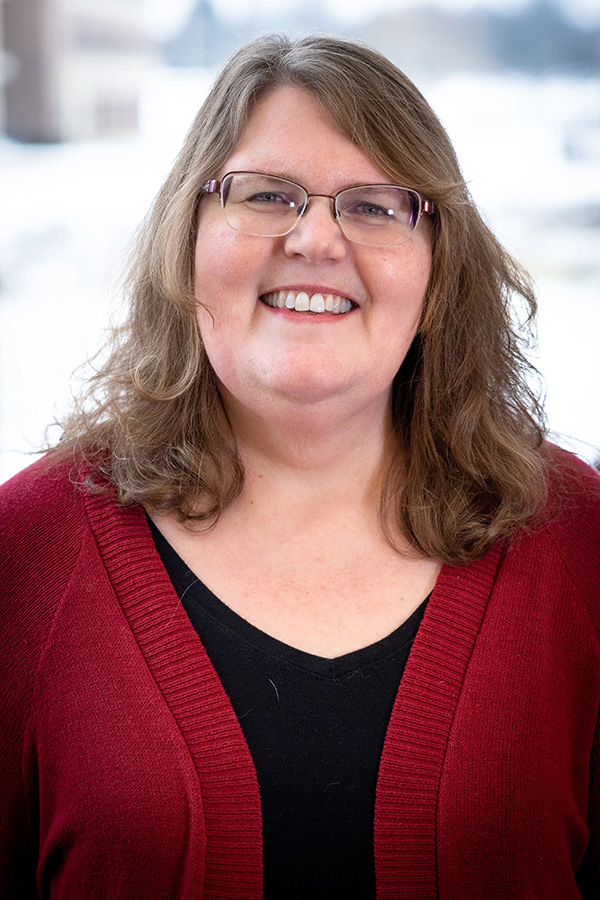
"We can all agree that the library is a gorgeous, amazing space. It's already a place that people want to go, students and community members alike. But UM-Flint is changing. Many of our students are studying wholly online. Campus is different today than it was in 1994 because the way we study and the way we learn is different. So we really have a blank slate in this building to build something that really fits our campus," said Jennifer Dean, Thompson Library director.
A key way the library could evolve with the generosity of donors is by developing specialized study spaces. Subjects like anatomy, virtual reality, and rhetoric require more than just a quiet place to read, and Dean said the library could house resources and rooms for students to make more meaningful explorations of these and other topics.
"When this library was created, there was a huge outpouring of community support. In this next phase, it will continue to be a place where everyone can feel a sense of ownership and enjoyment," said Dean. "People can visit and say, 'I helped make those study rooms happen. I helped make that interactive lab happen. I helped get the latest technology for our archives so we can continue to study and preserve Flint's past.'"
That commitment to the community is embedded in UM-Flint's mission and is central to the campus' campaign priorities.
"Priorities like experiential learning and research are opportunities for the university to work alongside community partners, addressing relevant issues while providing meaningful opportunities to students," said Schrader.
"We want to partner with community organizations and share our resources with them. Entrepreneurial resources like our Hagerman Center for Entrepreneurship & Innovation are relevant not just for students, but for our neighbors as well," Schrader said. "Embedding experiential learning into more curriculum can create better outcomes for our region while offering students a richer, more meaningful education."
Those interested in donating can do so online at UM-Flint's giving webpage. For more information about giving opportunities with UM-Flint, visit the University Development webpage.
Related Posts
No related photos.
- Alumni
- Chancellor
- Community
- Facilities & Grounds
- Giving
- Library
- Student Affairs
- Student Life
- University News
Logan McGrady
Logan McGrady is the marketing & digital communication manager for the Office of Marketing and Communication.